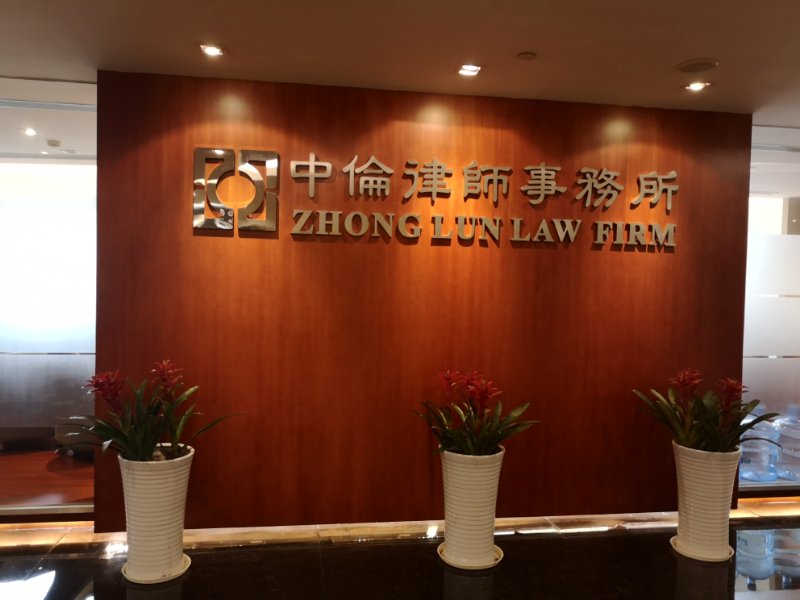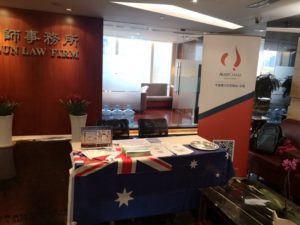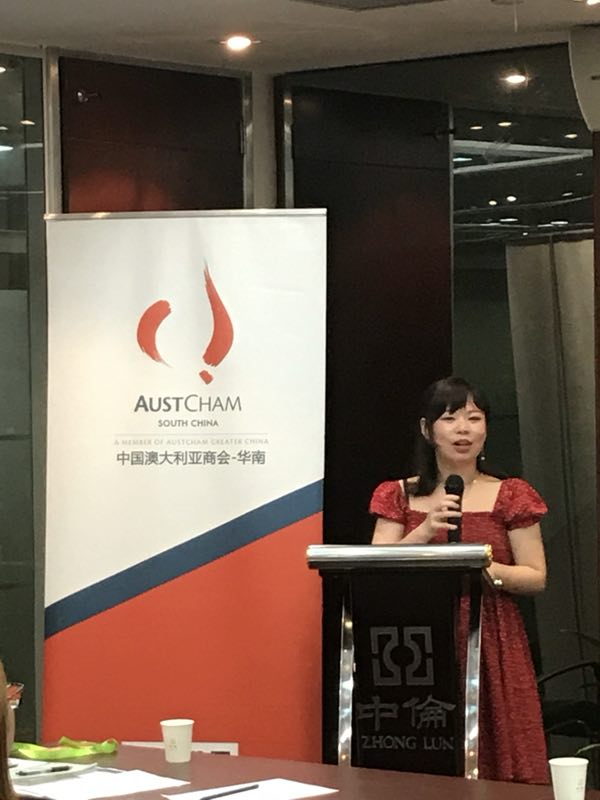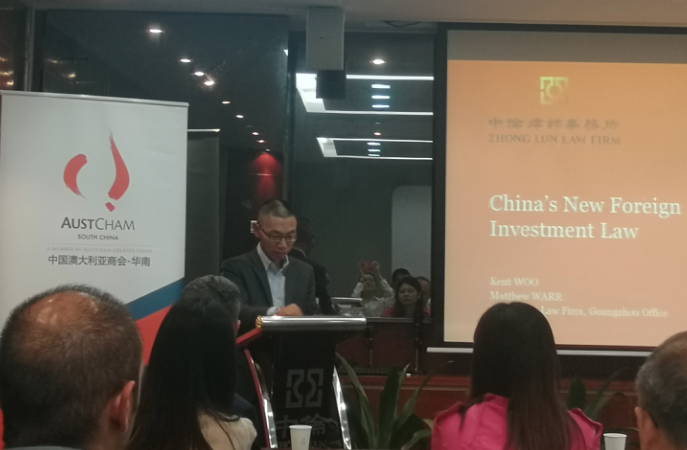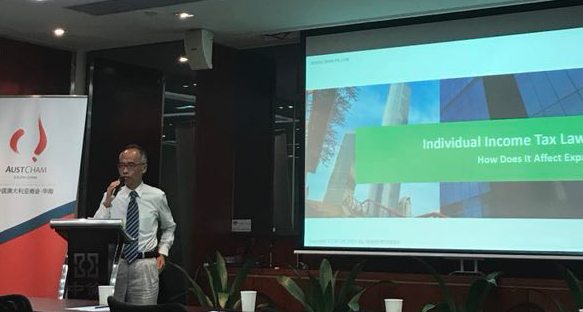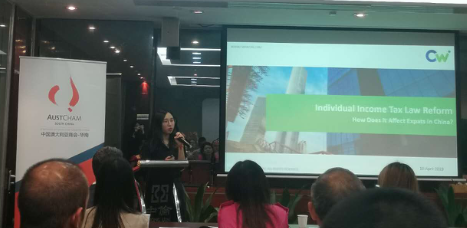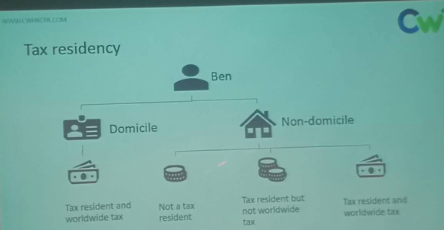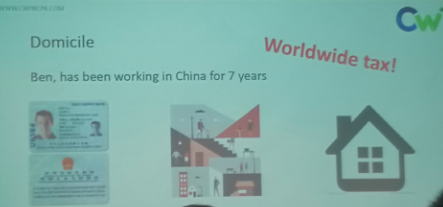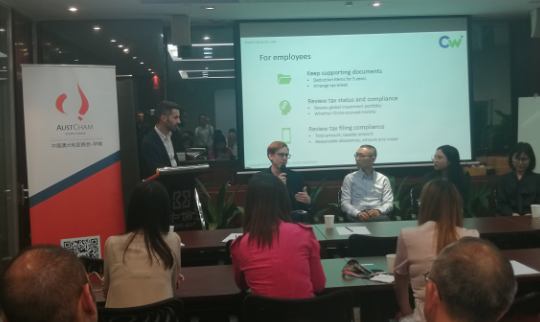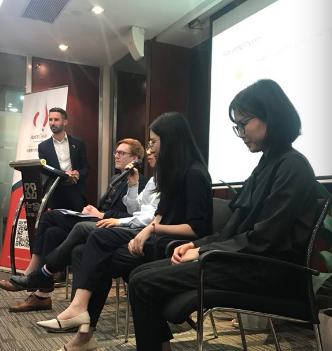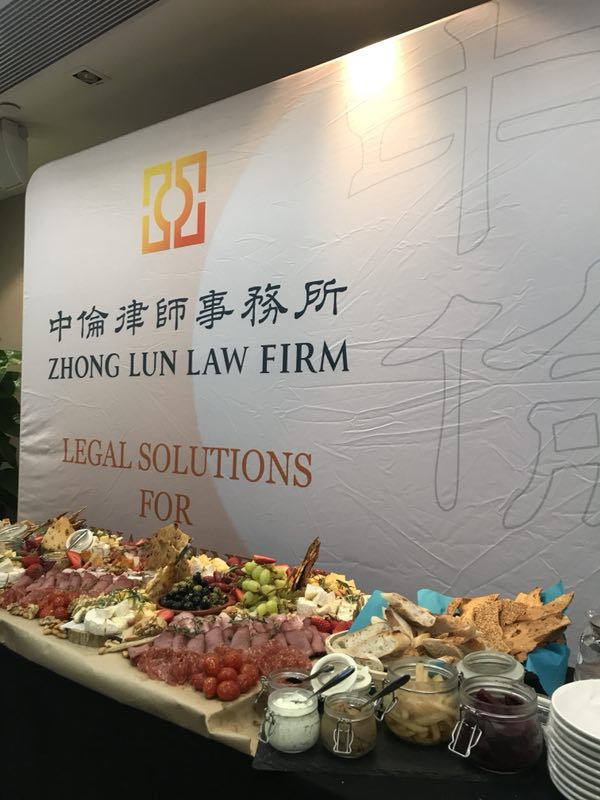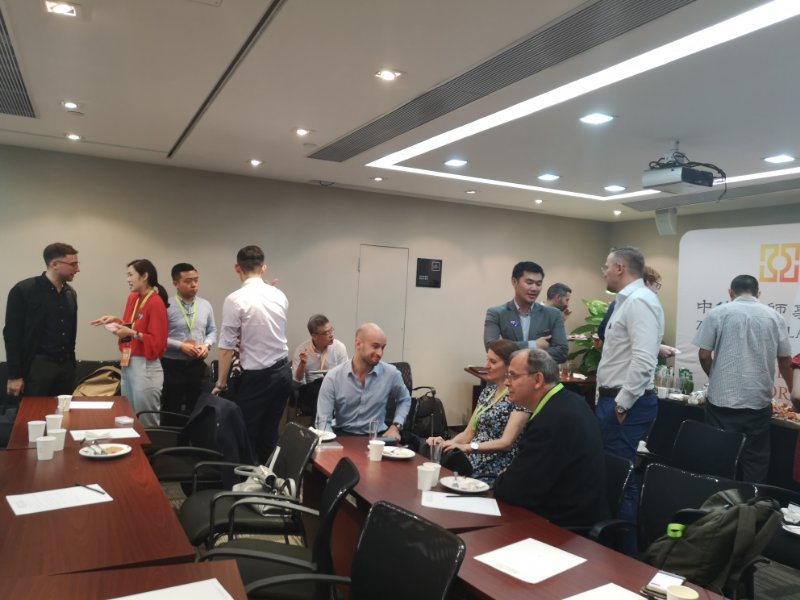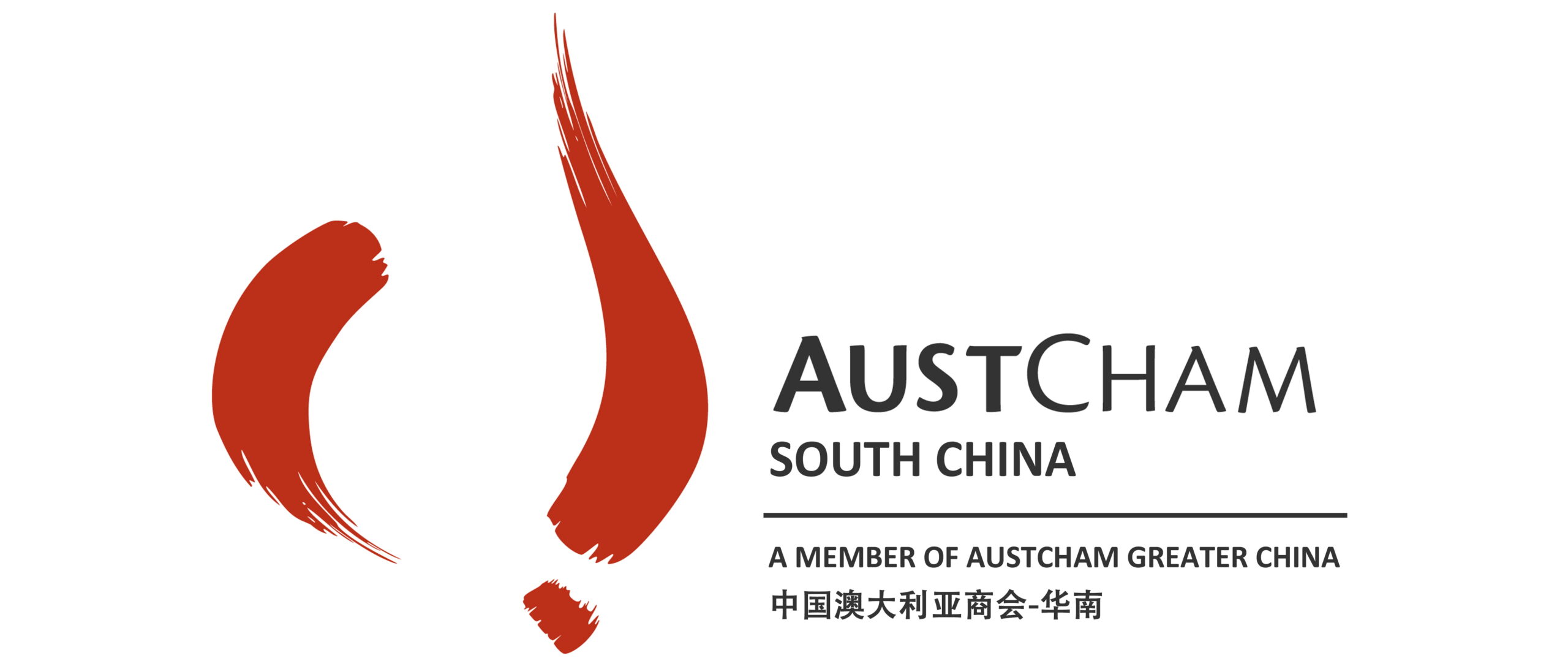« All Events
Review | April 10 Legal Seminar
04-10-19 @ 6:30 pm - 8:30 pm
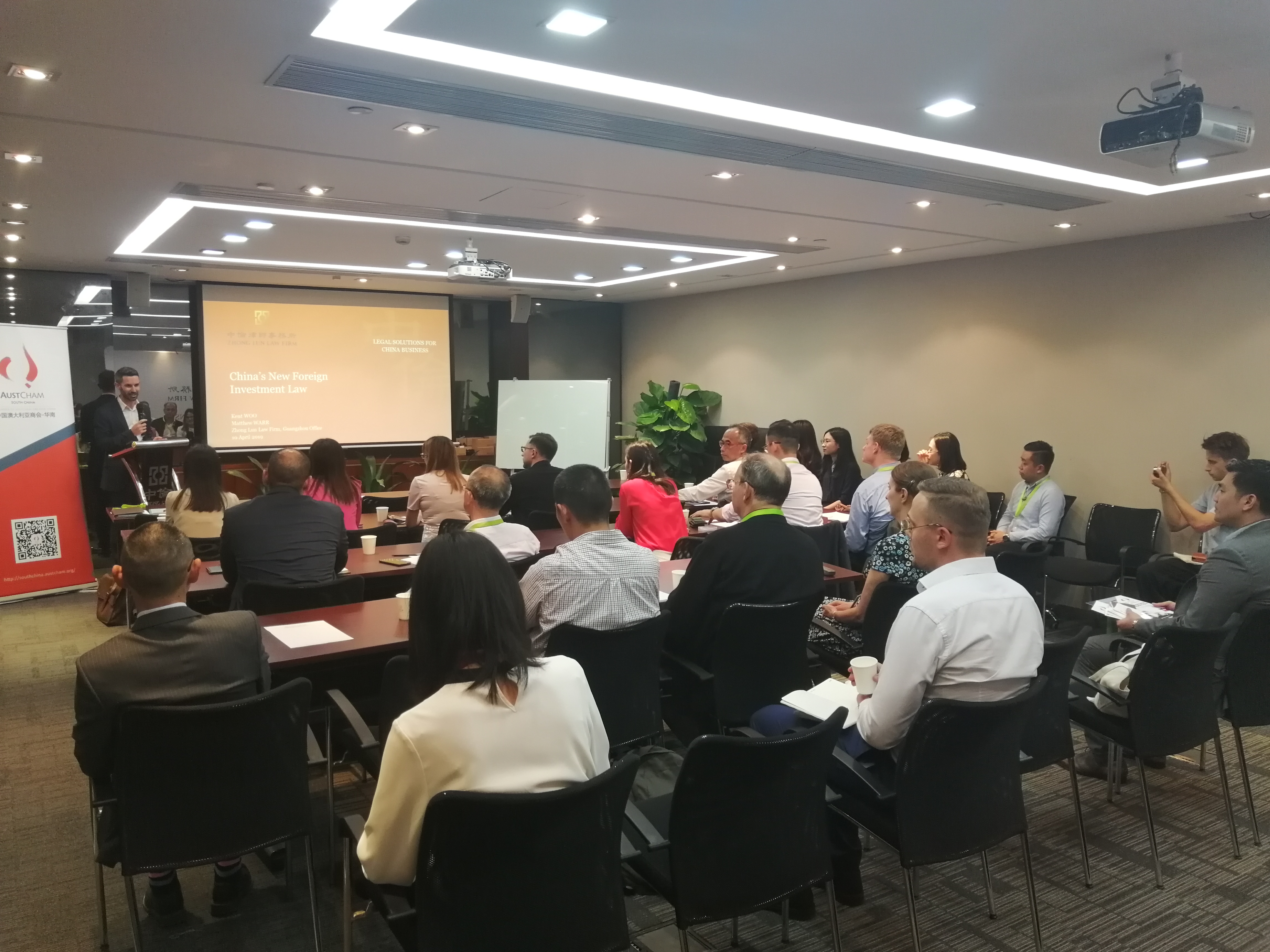
On April 10, AustCham South China organised a legal and tax seminar in collaboration with Zhong Lun Law Firm and CW CPA.
AustCham was proud to have Kent Woo and Matthew Warr from Zhong Lun share their insights on the new Foreign Investment Law, and Thomas Wong and Hailey Guo from CW CPA introduce the revised Individual Income Tax Law and its impact on foreigners working in China.Geoff Matthews, Consul (Political/Economic) at the Australian Consulate-General Guangzhou, moderated the seminar and also shared with us some insights on the seminar topics from the perspective of government.
△Di Hu
To kick off the seminar, Di HU, Events and Communications Manager at AustCham South China, expressed her warm welcome to the audience.
△Geoff
Geoff started by stating that this is the first business seminar of AustCham South China’s new series of seminars focused on legal and regulatory issues as well as practical business feedback and experience sharing.
He then briefly touched on some foreign investment facts related to the China-Australia relationship. For example, he mentioned that according to the Australian Bureau of Statistics, the stock of total Australian investment in China reached AUD77.1 billion in 2017, of which direct investment made up AUD13.5 billion; while the stock of total Chinese investment in Australia was approximately AUD65 billion in 2017, of which AUD40.7 billion was direct investment.
Furthermore, Geoff emphasised that like our bilateral trade relationship, the two-way investment relationship is complementary and benefits both countries. The Consulate looks forward to working with Australian businesses to understand the way the new Foreign Investment Law will be implemented on the ground in China.
Following his opening remarks, Geoff handed the floor to the first speaker, Kent Woo from Zhong Lun.
Kent began his presentation by introducing the new Foreign Investment Law, stating that the new law comprises 6 chapters and 42 articles focused on the promotion and protection of foreign investment, and contains provisions that aim to give foreign investors equal treatment compared with domestic investors.Kent’s presentation covered a wide range areas related to the Foreign Investment Law, including pre-establishment national treatment and the negative list, protection of intellectual property rights and prevention of forced technology transfer, protection of trade secrets, information reporting requirements, and corporate governance changes to joint-ventures under the Company Law and Partnership Enterprise Law.Regarding the impact of the Foreign Investment Law on the corporate governance of joint-ventures, here are somr takeaways.
• Shareholders’ meeting will become the highest authority of Joint Ventures; currently this is the Board of Directors• Unanimous approval no longer required for certain important decisions or to transfer equity to other parties• Chinese individuals can likely become shareholders of newly incorporated Joint Ventures like foreign individuals (although this is still unclear); currently only Chinese companies can become shareholders.
Kent, however, also stressed that successful implementation of the Foreign Investment Law will depend on more detailed provisions in the implementation rules which are expected in the near future.
Following Kent’s presentation, Thomas Wong, partner of CW CPA, gave a brief introduction to his company, and emphasised his deep and long-term connection with Australia.Serving as an Investment Promotion Ambassador of InvestHK (a department of the Government of the Hong Kong Special Administrative Region responsible for attracting and retaining foreign direct investment in Hong Kong) and an International Advisor of Invest Guangzhou, Thomas is dedicated to promoting trade and investment between China and Australia. Thomas believes that China is undertaking serious reforms not only in its promulgation of the Foreign Investment Law but also in its recent revisions to the Individual Income Tax Law. The improvement brought about by the reforms, Thomas asserts, will benefit foreign investors in China.
Hailey Guo, PRC accounting specialist and advisor from CW CPA, gave us vivid examples by using fictional character “Ben” and hypothetical situations to explain to us how to deal with the issues according to the revised Individual Income Tax Law.
Case Analysis
For example, if Ben attained a permanent Chinese residence card, bought an apartment in China and lived there with his wife and children, it would be very likely that he would be treated as having a domicile in China and thus subject to worldwide tax. Moreover, individuals who do not have a domicile in China but have resided in China for 183 days or more accumulatively within a tax year shall be deemed as resident individuals. Many participants were interested in this topic as it helped them understand how to avoid becoming a taxpayer on their worldwide income. Also, Hailey remarked about the updated preferential policies and made a comparison between specific additional deductions newly introduced by the revised Individual Income Tax Law, as well as eight tax exemption allowances. Finally, Hailey shared what employers and employees should do under the amended IIT Law.
For employers:1. Pay attention to deductions claims• Remind employees of changes• Offer training and guidance2. Establish policies and procedures
• Collect information in time
• Enhance internal control and mitigate the compliance risk
• Keep relevant tax documents for audit purpose and to avoid disputes
3. Special arrangement for expatriate employees
• Tax break arrangement for expatriate employees
For employees:
1. Keep supporting documents
• Deduction items for 5 years
• Arrange tax break
2. Review tax status and compliance
• Review global investment portfolio
• Identify China-sourced income
3. Review tax filing compliance
• Reasonable amount and scope of allowances
From left to right: Geoff, Matt, Kent Woo, Halley Guo, Spring
After Hailey’s presentation, we had a panel discussion so that participants could ask questions about the content in the presentations, as well as general legal, tax or foreign investment related matters. Some raised questions about intellectual property and trademarks.Matthew Warr from Zhong Lun talked about a common mistake that many foreign companies make —— only focusing on registering domain names ending with [.com], but not Chinese domain names ending with [.cn].Matthew stated that Chinese domain name registration, like trademark and patent registration, uses a “first-to-file” system, meaning that whoever files for the domain name first (with very few exceptions) owns it. He explained that it is not uncommon for foreign companies establishing their business in China to discover that [.cn] Chinese domain names identical or similar to their trade name or mark and their [.com] domain name have been registered by others – who often have a bad faith intent to profit from the company’s trademark by demanding high sums of money in return for transferring ownership of the domain name (known as “cyber-squatting”).Companies can challenge this under certain conditions and make a submission for arbitration, Matthew said, but this must be done within two years of the domain name’s registration, otherwise litigation becomes the only option to legally contest ownership, meaning more effort and cost.
Other questions that were raised include whether or not joint ventures should follow the same salary regulations under the Foreign Investment Law (yes they should); and whether English can be used to submit foreign investment information as required by the new law (currently only Chinese can be used). The panel also discussed preferential policies of the Individual Income Tax Law for imported talents in the Greater Bay Area.
Special thanks to our catering provider Social & Co. for designing and making an amazing grazing board for us to enjoy during networking following the panel discussion. Also thanks to our wine sponsor Food & Wine Exports Asia and our beer sponsor Carlsberg. Thanks to Zhong Lun Law Firm for providing the venue to make this seminar possible. Last but the least, thanks to the speakers from Zhong Lun and CW CPA for the excellent presentations.
This seminar was a great beginning to our series of business seminars planned for 2019. AustCham will hold more useful business seminars in the near future. We welcome suggestions from and cooperation with our members and the wider Australia-China and international community. We look forward to seeing you at our future events!


